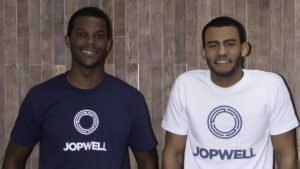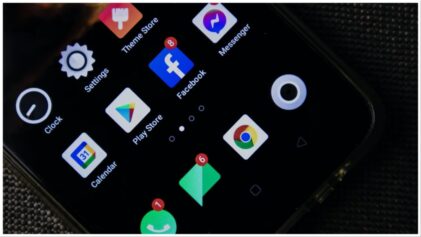It’s 2015 and the Black unemployment is nearly double the national average. African-American CEO’s oversee less than 1 percent of Fortune 500 companies, and of the 41,000 people employed by tech-giants Facebook, Twitter, and Google, a dismal 758 are Black.
Corporate diversity is still a work in progress, as it has been since President John F. Kennedy first ordered companies doing business with the government to take “affirmative action” in hiring minorities. Forty years later, businesses are still unsure of what “action” to take. In spite of clear evidence that diversity drives innovation, minorities are still grossly underrepresented in Corporate America, particularly in executive positions.
Entrepreneur Porter Braswell, 27, believes he can fix America’s diversity problem with a tech-enabled platform designed to radically transform the way companies recruit minority talent.
“I intimately know the pain points when it comes to recruiting diverse candidates,” says Braswell, co-founder of Jopwell, an innovative recruiting platform that connects corporations to minority applicants.
“While companies say they value a diverse workforce, historically there was no easy way to tap into a pipeline of diverse candidates,” he says.
Braswell interned with Morgan Stanley while attending Lawrenceville Prep, an elite boarding school in New Jersey. He subsequently completed three summers with Goldman Sachs while studying at Yale, after which the firm hired him.
It was his own career path, from intern to employee, that raised a red flag about corporate hiring practices.
“I realize that the only reason I ended up in finance is because I was identified really early on.”
Braswell observed that corporations were depending on interns and employee referrals for minority recruitment, a process far too small in scale to have an impact. Braswell and Jopwell co-founder Ryan Williams, also a Goldman Sachs alum, developed the company to overcome the three major pain points, or challenges, that compromised minority recruitment efforts— limited resources, inadequate talent pool and insufficient marketing.
Here’s how Jopwell works.
Black, Hispanic and Native-American candidates create detailed profiles on Jopwell.com, listing their backgrounds, interests and skills. The employee profiles form a data base that partner companies can mine for talent that meets their specific qualifications. In this way, Jopwell serves as an on-demand virtual pipeline of minority talent, readily available when companies are looking to hire. Partner companies, which pay to participate, can also use the site to advertise opportunities and promote their diversity initiatives.
Jopwell is connected to over 20 high-profile firms including Facebook, McKenzie & Co. , Master Card and Morgan Stanley. Their impressive roster, a magnet for angel investors, has helped raise over a million dollars since its January 2015 launch.
Exclusive to minority college students for now, the platform is a potential gold mine for job seekers who can gain access to major Fortune 500 companies in addition to startups looking to diversify early on.
The platform also helps candidates broaden the scope of their job search by culling similar opportunities across industries.
“People with a computer science background would think, ‘Okay, I have to work at a tech company’ but you can do tech at a consulting company,” he advises. “If you went to law school, startups are looking for general counsel all the time.”
Last September, Braswell and Williams both left their positions at Goldman Sachs buying and trading currency. While many would-be entrepreneurs spend years carefully plotting their escape from the office, Braswell and Williams left their positions with little more than an idea.
“Once Ryan and I agreed that yes, this is a good idea and we are two people who can do it, once we had that, we were secure,” recalls Braswell. “We didn’t have anything. We just had undeniable faith.”
Armed with a solid pitch, the pair tapped into the professional networks to secure commitments from several major companies.
“Once we had those commitments we went to investors and said, ‘If you give us the money to build this platform, we already have the companies lined up’.”
Now that Jopwell is in demand, the pair no longer solicits.
“We have companies approach us all the time and we don’t say ‘yes’ to everybody,” Braswell admits. “We strategically partner with organizations that truly value diversity and want to leverage our platform.”
In less than a year, Braswell and Williams took Jopwell from from a concept to a start-up with six full-time employees and a Manhattan office. Braswell credits Jopwell’s astounding traction with dedication, pluck and genuine calling, encouraging aspiring entrepreneurs to mine their own lives for ideas.
“Instead of trying to focus on starting the newest app… identify a problem you can relate to and try to solve that,” he says.
When asked about whether he believes his tech company can eliminate blatant racism from the hiring process, Braswell’s answer is modest.
“I think that companies that try to solve everything fail,” he reasons. “What we are trying do is build a pipeline so that companies can never say again that there isn’t one for minority candidates. Once we do that very well we can focus on another issue.”



